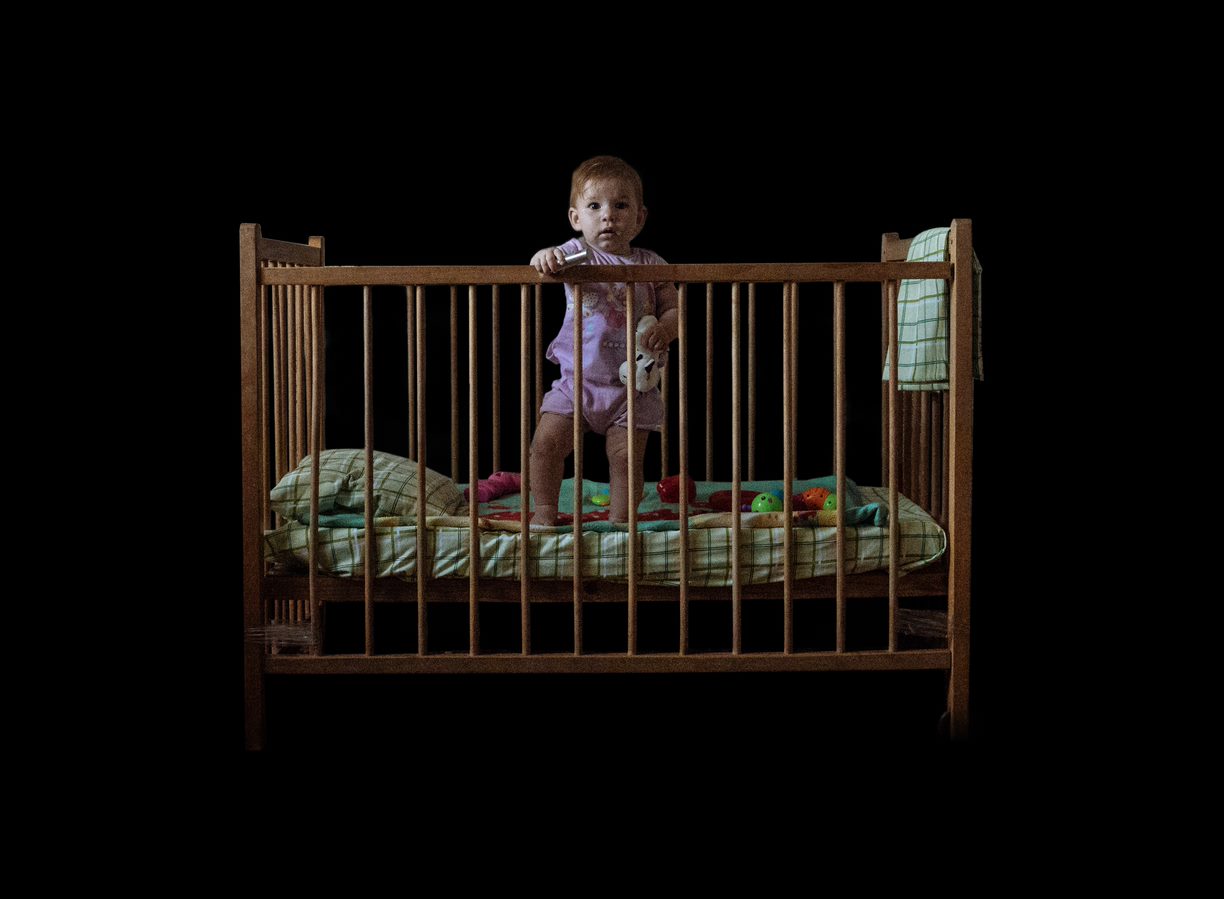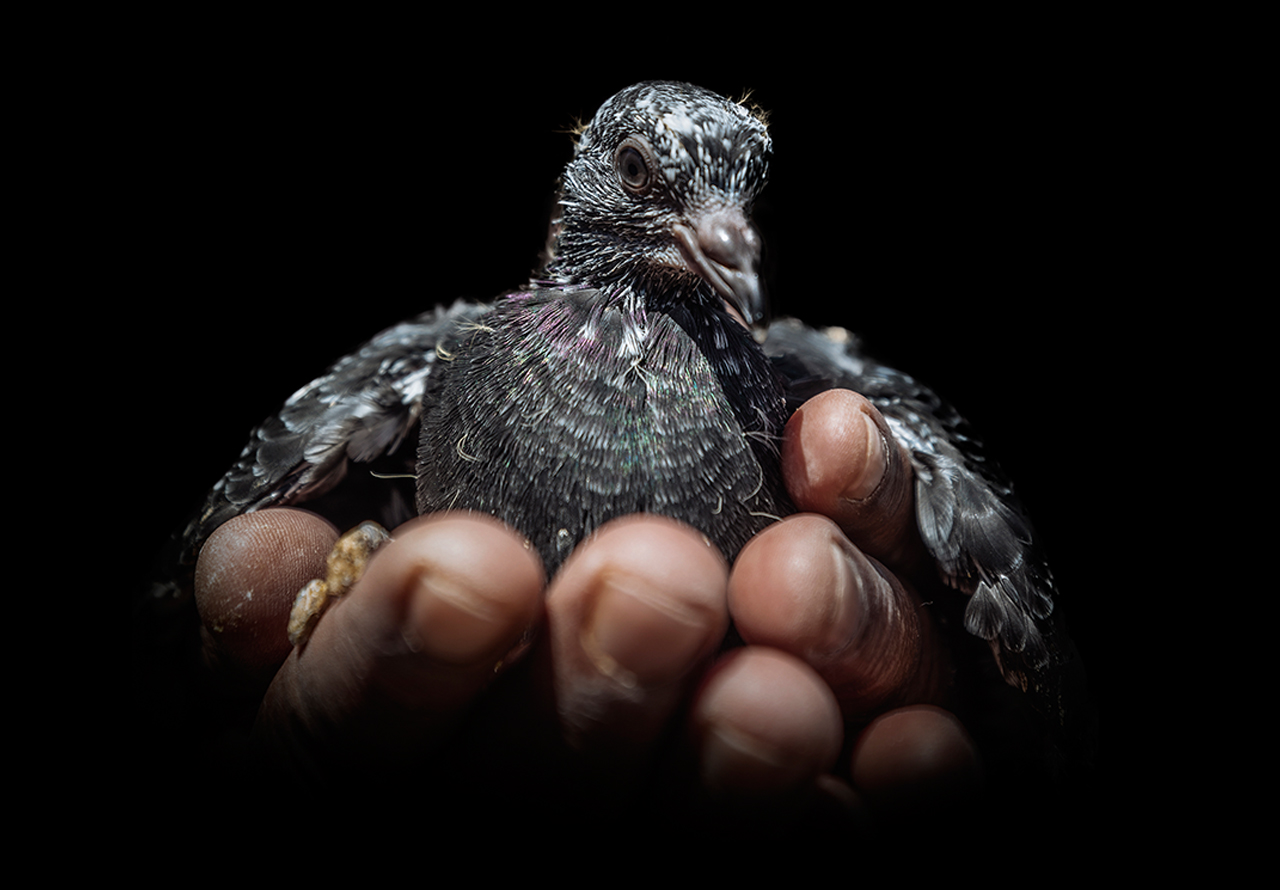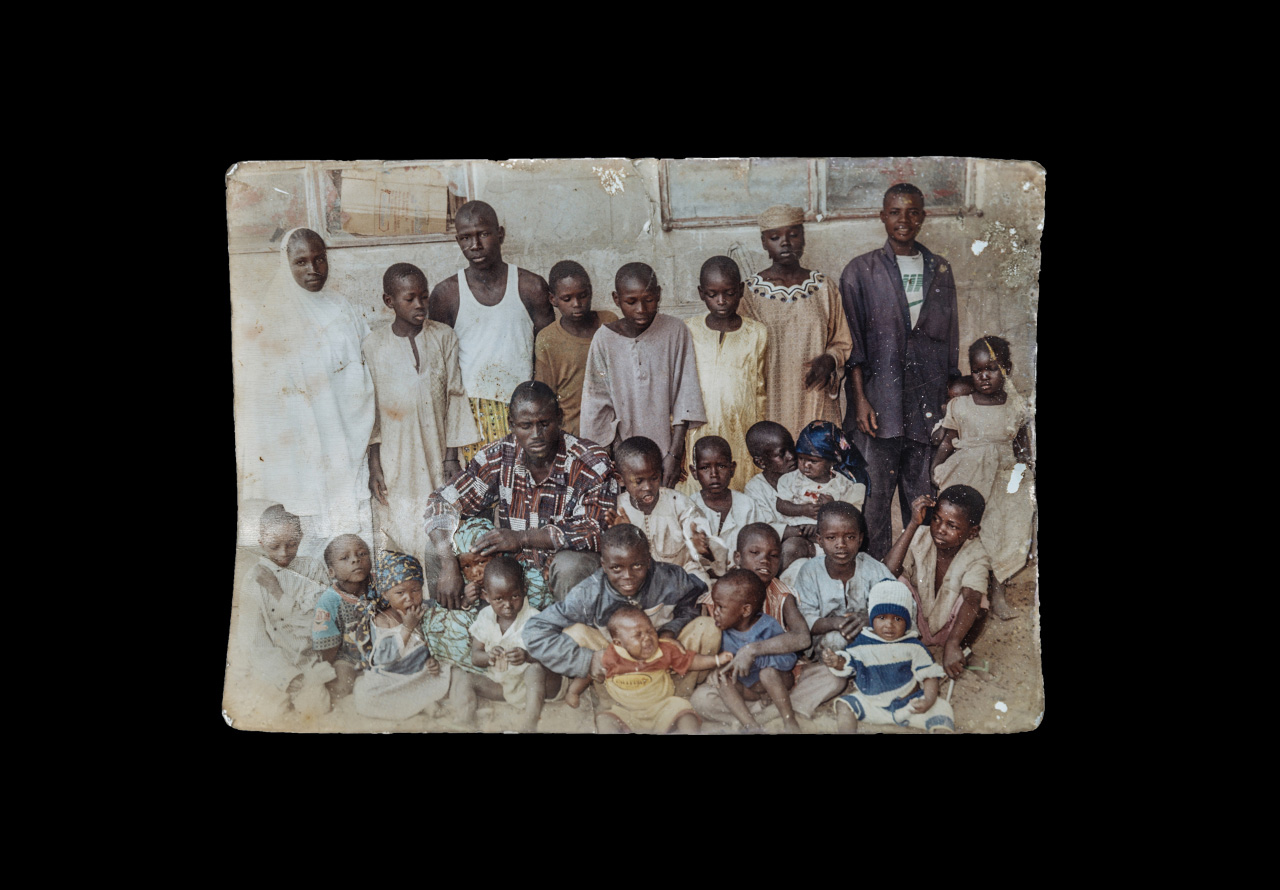The June 2014 shelling of Donetsk, an industrial city of more than 900,000 in central Ukraine, was the catalyst for Tetiana to flee with her husband and newborn child.
It was a wrenching decision for the scientist and expert in artificial intelligence: her father was dying of cancer but the safely of young Maria was the priority.
Just one year earlier, Tetiana was utterly content. She’d raised two daughters to adulthood on her own before meeting Volodymyr, a single father of two sons. They fell in love and married. Within months Tetiana was pregnant. Then their world was turned upside down.
“I was a researcher, lectured and had private lessons,” she recalled. “I did not live in luxury, but I could afford everything I needed.”
“A month after Maria was born, we came to Myrnohrad, where my husband worked at a coal mine and had a private house with basic conditions. We took clothing for Maria, a baby chair and a crib. That crib is more than 23-years-old now! My two elder daughters grew up in it. Then all my friends used it for their kids,” she said.
In the rush to pack, Tetiana focused on the needs of her infant daughter.
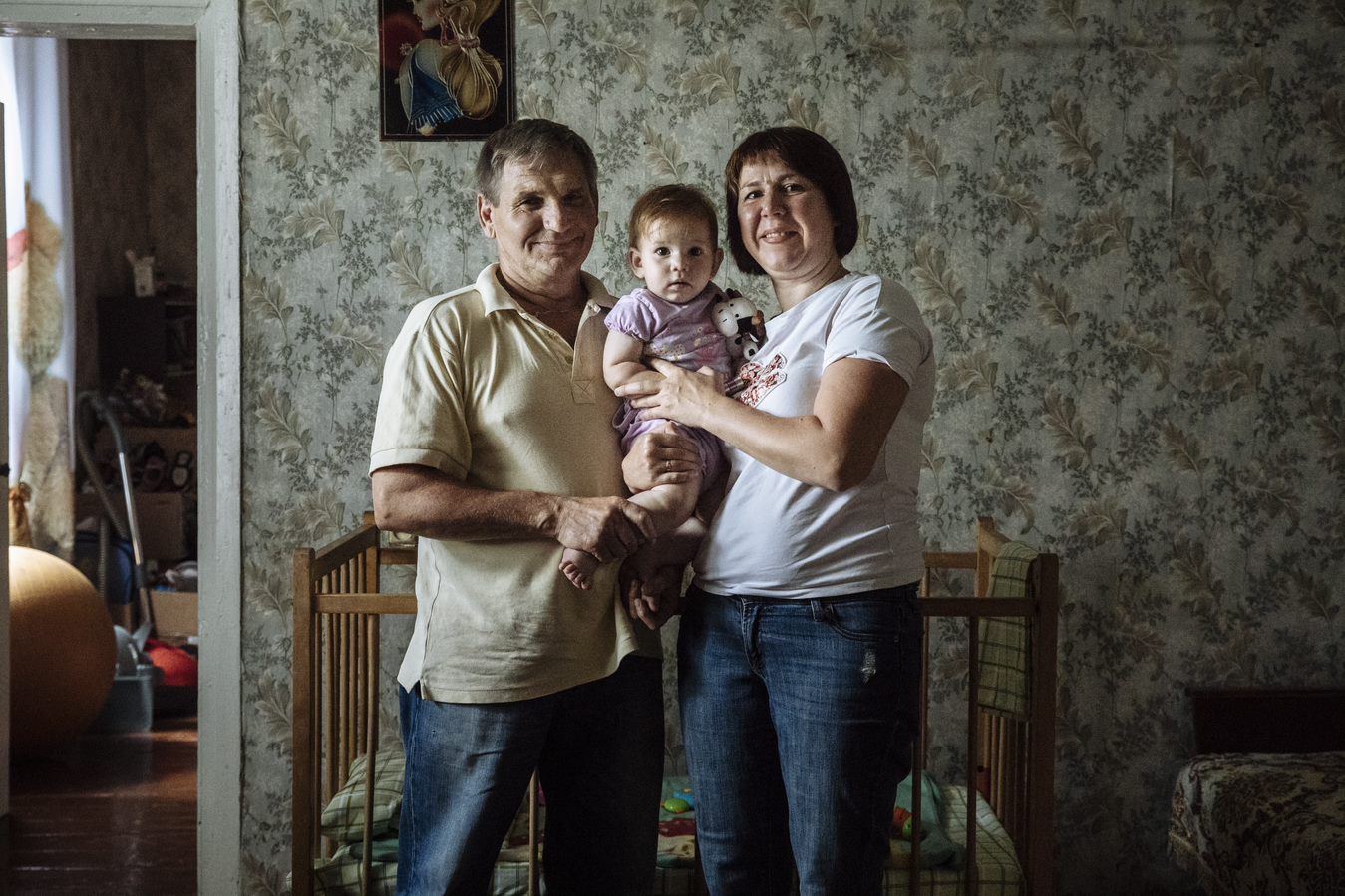
“I took only spare underwear, shorts, and a blouse. We thought that we would return to Donetsk in a month or two… of course, we had no doubts that we should take the crib with us.”
The first months were tough. The mine where Volodymyr worked delayed paying his salary and the city’s water supply was cut for almost six months. The lack of basic supplies and her father’s failing health lead her to start buying diapers on-line and selling them at consumer prices generate a small income. This initiative collapsed when her corporate partner fled with her savings and money loaned by friends.
“That was my point zero. I had a severe depression; if not for my baby, I don’t know if I would ever survive. I had a feeling that my whole life was taken away from me,” she said.
“Then I somehow managed to collect myself. I received social payments and invested them in hygiene items for sale. I rented a shop which had no heating at that time. My husband worked at the mine from 6 a.m. to 4 p.m., and I was working in the shop, with my baby sleeping on the chairs.”
Tetiana now runs two small shops employing four other displaced women with support from IOM and contributes some of her goods as charity to vulnerable local people. She also found more use for the family crib; a new daughter has arrived since they were displaced.
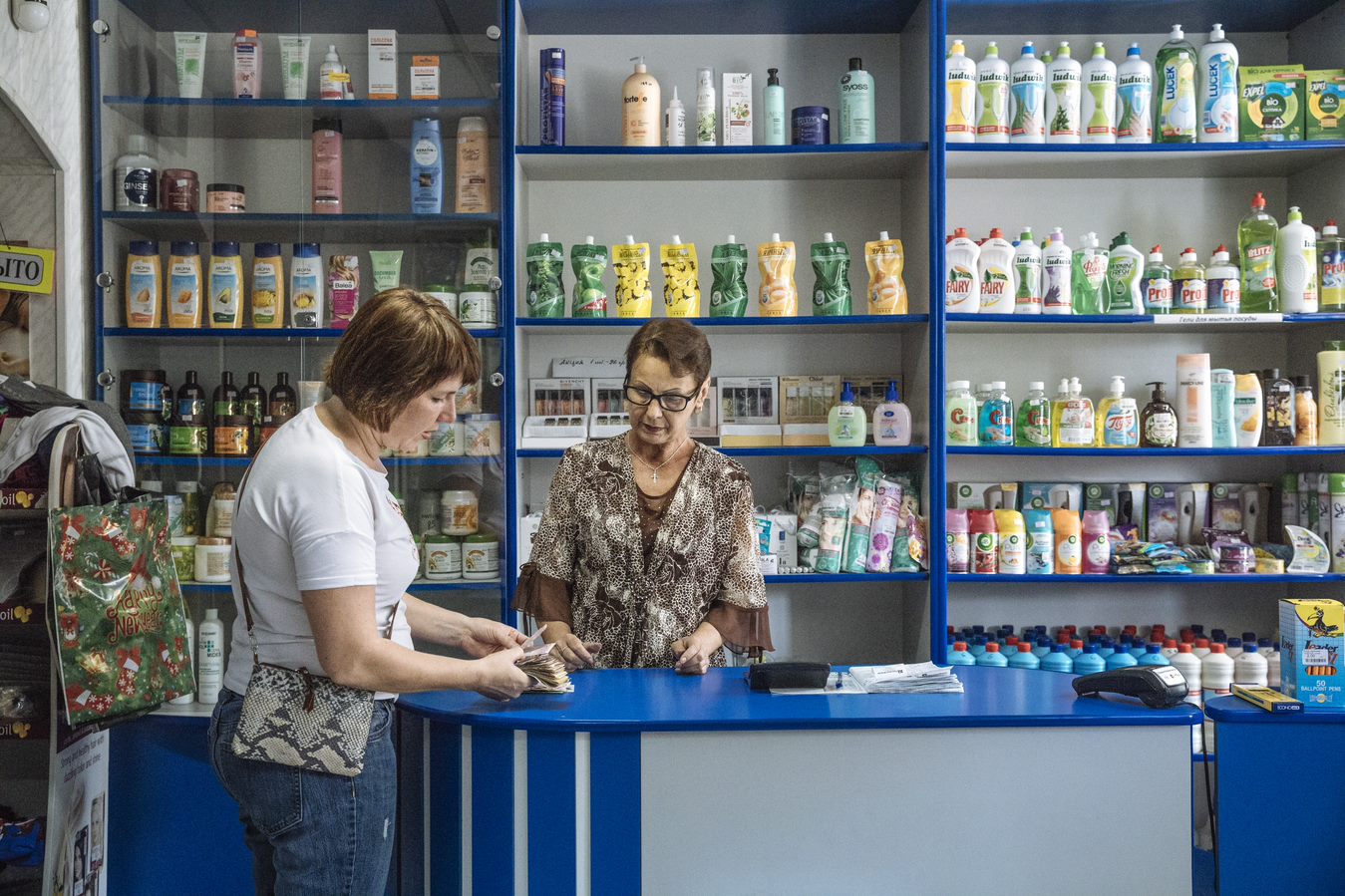
“I invest all my energy in my business. When I was pregnant again with my fourth daughter, Aleksandra, I was regularly visiting other shops, trying to learn how to better present goods,” she said. “I was arranging our shop together with Volodymyr, and Aleksandra was born just a week after we opened it.”
Today, baby Aleksandra has replaced Maria in the crib, which has become a symbol of rebirth and perseverance.
“My best memories are related with this crib. It was bought in 1995 in a used goods shop,” she said. “My three daughters grew up in it, and now it belongs to the fourth one. You see that it is a bit tired, as I move it all over the house so the baby would always be with me and stay safe.”
